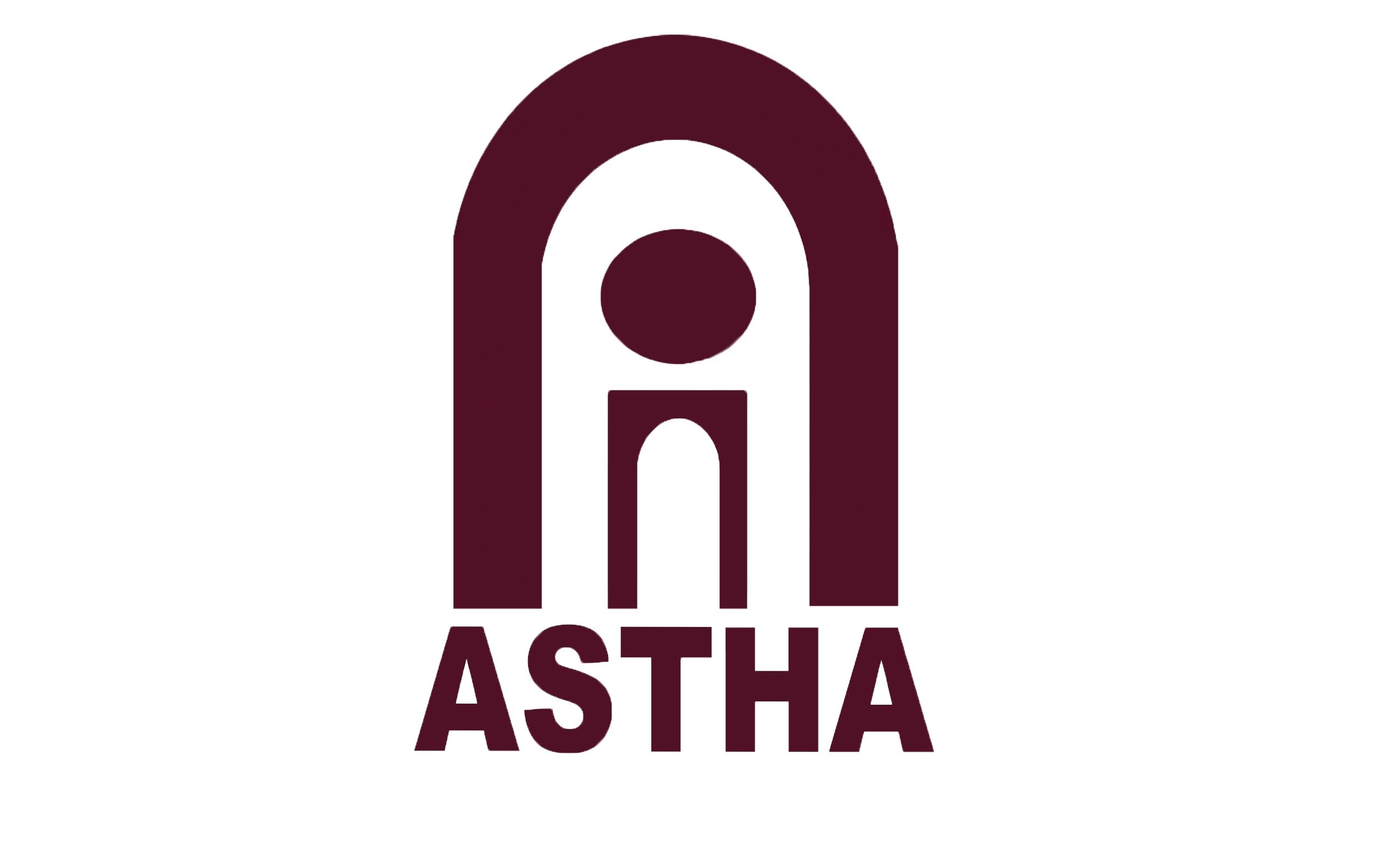Cause Area
Primary Sectors
Secondary Sectors
Financials
-
2016
Total IncomeRs.4,703,253Total ExpensesRs.5,620,115Non Program ExpensesRs.1,931,538Program ExpensesRs.3,688,577Tip: Click on any value above to exclude it. -
2017
Total IncomeRs.5,381,152Total ExpensesRs.5,015,779Non Program ExpensesRs.1,651,678Program ExpensesRs.3,364,101Tip: Click on any value above to exclude it.
Geographies Served
Programs
-
Community Based Inclusive Development Programme
District
New Delhi
States
Delhi
Established in 1996, ASTHA, initially centred on direct service delivery for children and individuals with disabilities in Govindpuri. Evolving its approach to embrace Community Based Rehabilitation (CBR), it transitioned from an institution-based entity to a community-focused organisation. ASTHA now directly engages with children with disabilities, their families, and the broader community. The organisation's commitment to a cross-disability approach is in line with the principles of a Community-Based Inclusive Development (CBiD) approach, reflecting its growth and inclusive community work.
-
Resource Centre
District
New Delhi
States
Delhi
Haryana
Uttar Pradesh
ASTHA's Resource Centre gathers and shares information on disability-related schemes, formulating specialized materials for children with disabilities to enhance their social and communication skills. Extending its reach beyond Delhi to states like Haryana and Uttar Pradesh, it collaborates with organisations, providing training and support. The centre publishes modules on Early Childhood Care and Development (ECCD) and child protection, conducting research studies. ASTHA's annual reports, supported by UNICEF, analyze the Right to Education Act, of 2009. Through the Disability Resource Centre, ASTHA forms alliances with over sixty organisations, integrating disability issues into broader agendas for marginalized groups in sectors such as Panchayati Raj, Child Rights, HIV/AIDS, Gender, Human Rights, Education, Health, and Rights.
-
National Disability Helpline Service
District
New Delhi
States
Delhi
ASTHA introduced Delhi's pioneering disability helpline in 2000, offering telephone and walk-in services for referrals, counselling, and information. Through collaboration with the National Trust, this initiative evolved into the National Disability Helpline, inaugurated by Former President Dr. A. P. J. Abdul Kalam and now referred to as the National Disability Helpline. As an integral part of the Resource Center, the helpline plays a vital role in disseminating information on schemes, policies, and rights for persons with disabilities. Serving as a key link in state and national helpline networks, it addresses inquiries from across India, extending support and guidance.
-
Research Programme
District
New Delhi
States
Delhi
ASTHA engages in impactful research studies aimed at the well-being and inclusion of children with disabilities. Noteworthy projects include "Navigating Health and Education," exploring the experiences of such children. Amid the COVID-19 impact, ASTHA conducted a national consultation, producing a comprehensive report. Studies like "SMSA Inclusive Education" and policy briefs such as "Samagra Shiksha Abhiyan" focus on inclusive education. The organisation's commitment to addressing challenges during the pandemic is evident in a case study on outreach from March to August 2020. ASTHA contributes significantly to understanding the implementation of the Right to Education (RTE) Act, presenting four annual reports on the status of children with disabilities under the RTE Act. These studies collectively underscore ASTHA's dedication to research, advocacy, and the well-being of individuals with disabilities.
-
Workshops & Meetings
District
New Delhi
States
Delhi
ASTHA, in the last five years, has been actively involved in impactful workshops and meetings. This includes six national-level meetings covering topics like the Right to Education, Rights of Persons with Disabilities, disability-related laws, Samagra Shiksha Abhiyan, and the National Helpline. Additionally, around 20 state-level meetings were conducted, addressing themes such as Inclusive Education, Accessibility solutions, Early Childhood Care, and Helpline Network discussions. ASTHA's commitment to awareness is evident through training provided to approximately 70 organisations on disability awareness and Early Childhood Care at state, national, and international levels. The organisation also contributes significantly to community development by conducting training workshops for Community-Based Organisations (CBOs) and implementing disability awareness programmes for school teachers, school management committee members, and community members.
Registration Details
-
PAN Card
AAATA1308F
-
Registration Number
1805
-
CSR Form 1
Not Available
-
80G
AAATA1308FF20214
-
12A
AAATA1308FE20214
-
FCRA
231650955
About
-
Headquarters
New Delhi, Delhi
-
Since
1993
Impact
ASTHA has positively impacted 25,000 children and their families, assisted 17,000 helpline callers, collaborated with 51 community-based groups, conducted 612 workshops, and contributed to 118 research initiatives.
Vision and Mission
ASTHA's vision is an inclusive society where children and people with disabilities are respected and valued. Their mission is to work in partnership with children and persons with disabilities and their families, with a focus on the most marginalized.
Political & Religious Declarations
-
Political Affiliation
-
Religious Affiliation
Location
-
Offices in Cities
Other Details
-
Type
Non-profit
-
Sub Type
Trust
Website
Technology Adoption
-
SOC 2 Compliant
No
-
Financial Management
-
Beneficiary Management



